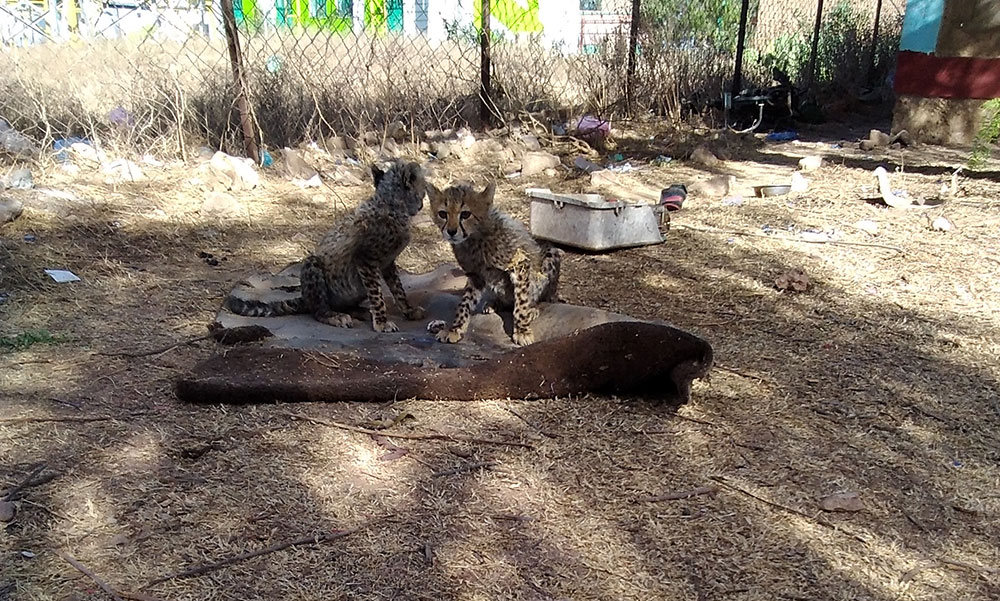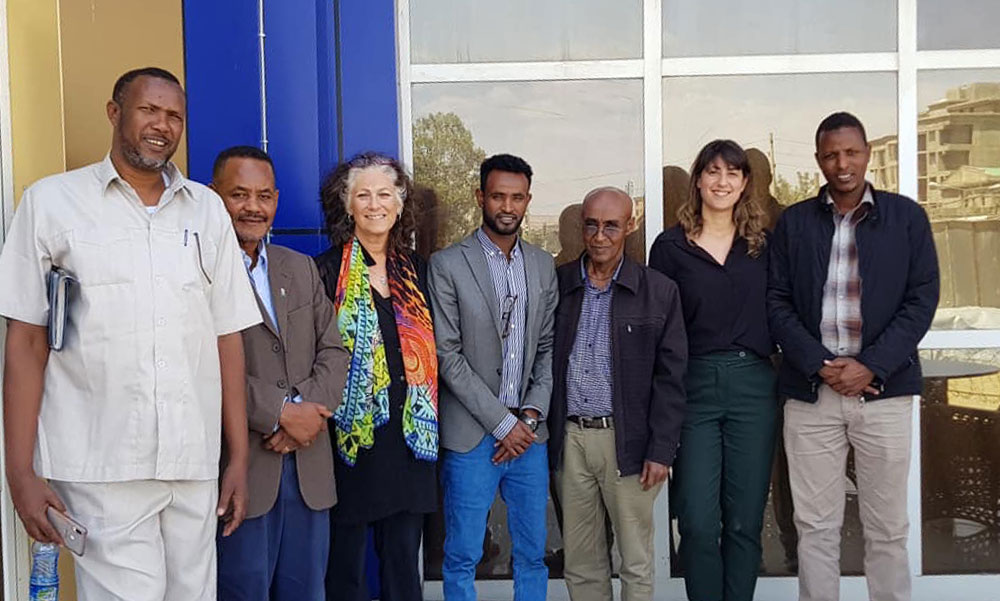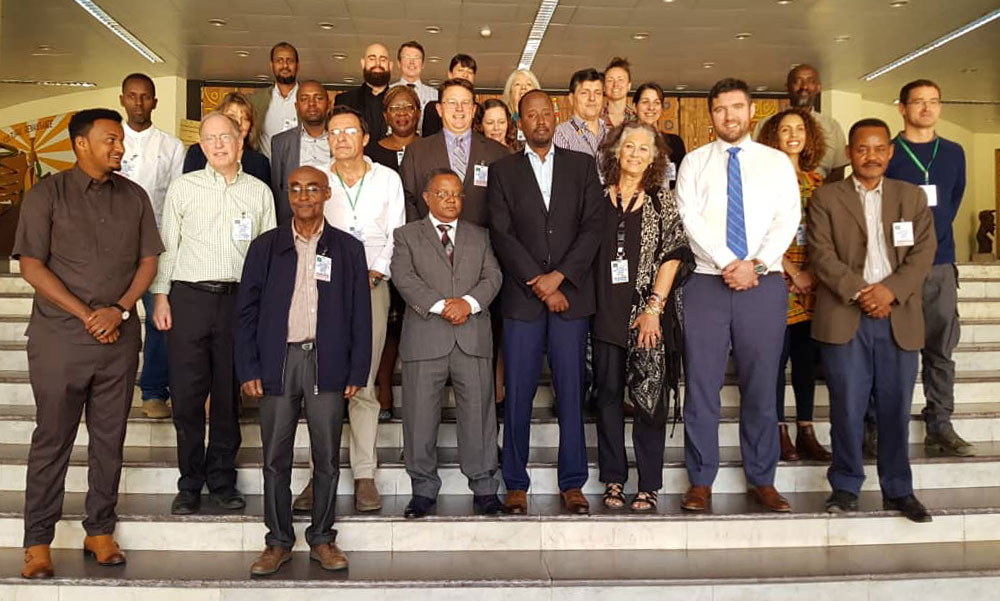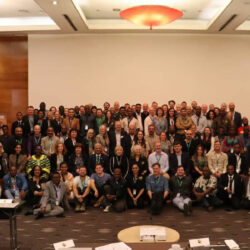Cheetah Conservation Fund Builds Coalition to Combat Illegal Cheetah Trade in Horn of Africa; Cooperation Results in Recovery of Two Trafficked Cubs
-

- by CCF Staff April 2, 2020

OTJIWARONGO, Namibia – 2 April 2020 – Forged through a series of meetings to introduce Cheetah Conservation Fund’s law enforcement capacity-building project LICIT (Legal Intelligence for Cheetah Illicit Trade) funded by DEFRA through its International Wildlife Trade (IWT) Challenge Fund, CCF’s newly-formed alliance with Ethiopian national and regional government wildlife agencies resulted in the rescue of two young cubs from the illegal wildlife trade earlier this week. Working closely with the Ethiopian Wildlife Conservation Authority (EWCA) and the Somali Regional State Illegal Wildlife Trade Task Force (SRS IWT Task Force), CCF helped facilitate safe transfer of the three-month-old cubs to the Ensessa Kotteh Wildlife Rescue, Conservation & Education Centre operated by the Born Free Foundation. The siblings were intercepted from wildlife traffickers near the Ethiopian-Somaliland border town of Kebri Beyah in February along with a third cub that since died.
CCF estimates that ~300 cheetah cubs are taken from the African landscape each year to supply the illegal pet trade. Fewer than 7,500 wild cheetahs remain in the world, with an estimated 300 reproducing adults in the Horn of Africa region. The majority are found outside of protected areas. A significant percentage originate in Ethiopia, Somalia and Somaliland and transit through Somaliland on their way to Yemen. CCF estimates three out of four die before ever becoming a pet. The others live shortened lives, due to health and nutritional issues. CCF believes the level of poaching is not sustainable with a population of this size, and that without intervention, cheetahs will disappear from the Horn of Africa within only a few years. For these reasons, CCF’s LICIT project stresses the need to build cross-border networks and create capacity in law enforcement.
“Most cheetahs poached for the illegal pet trade are found outside protected areas, many times along border regions that are sparsely populated by humans. Illegal wildlife trade laws between countries, or internally between a national and state government, may conflict. Determining which laws prevail and how to harmonise these differing dispute resolution systems are LICIT functions”, said Dr Laurie Marker, CCF’s Founder and Executive Director. “Because much of the trade we see involves cubs moving through Somaliland, our collaboration with the SRS IWT Task Force, EWCA, and the governments of Ethiopia and Somaliland are critical for long-term success”.
CCF’s first LICIT meetings were in November of 2019, an introduction to LICIT for EWCA and SRS IWT Task Force members by CCF LICIT Project Coordinator Ed Brown, LICIT Regional Coordinator Fetene Hailu of International Fund for Animal Welfare (IFAW) and Maria Pascual from Legal Atlas, a CCF LICIT grant partner. In February, Dr Marker and Dr Shira Yashphe, CCF IWT Lead, travelled to Addis Ababa to collaborate with both Ethiopian wildlife enforcement entities and discuss participation in a Cheetah Trade Workshop held at the African Union in Addis Ababa on 5 March 2020.
Sponsored by the Regional Environmental Hub at the U.S. Department of State in Addis Ababa, CCF and IFAW, the workshop brought together representatives from U.S. Fish & Wildlife, Colorado State University, TRAFFIC, Somaliland Ministry of Environment & Rural Development (MoERD), EWCA, SRS IWT Task Force, officials from the Somalia Ministry of the Environment, officials from Kenya law enforcement department, UK Foreign Commonwealth Office, DECAN, Born Free Foundation and others to share information on ongoing investigations, confiscations, court cases and research projects involving cheetah trade. Dr Marker briefed participants on the issue and CCF’s nine years of work with the Ethiopian and Somaliland governments. She gave a brief presentation on the newly-opened CCF Cheetah Safe House in Hargeisa, Somaliland, for cubs intercepted from the trade. Currently, CCF has 34 cubs there in its care.
“Cheetahs are not pets”, said Dr Marker. “They are apex hunters; their job is to help feed other wild species on the landscape. Every cub removed from the landscape not only puts the species closer to extinction, it creates a harmful, rippling impact for other wild species. Please help us stop the illegal trade in cheetah”.


Cheetah Conservation Fund
Conservation Fund (CCF) is the global leader in research and conservation of cheetahs and dedicated to saving the cheetah in the wild. Founded in 1990, CCF is an international non-profit organisation headquartered in Namibia. CCF is celebrating its 30th anniversary in 2020, making it the longest running and most successful cheetah conservation organisation. For more information, please visit www.cheetah.org.
MEDIA CONTACT:
Susan Yannetti, susan@cheetah.org or +12027167756
Dr Laurie Marker director@cheetah.org or +264811247887
Related Reading


